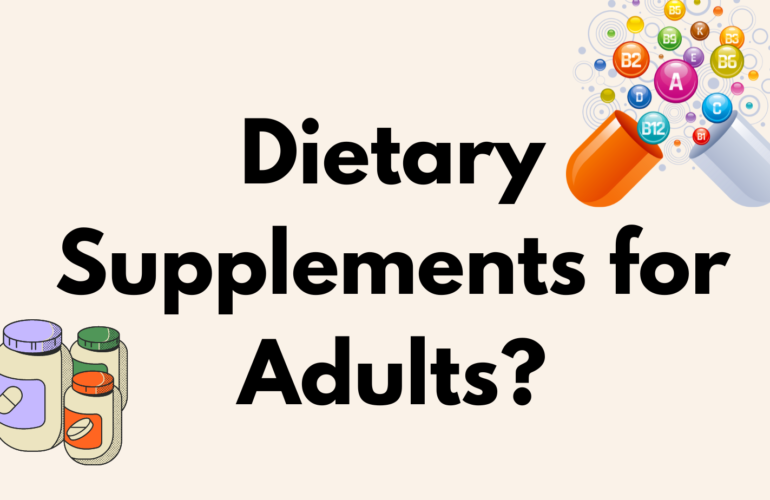In today’s health-conscious world, dietary supplements have become increasingly popular among adults looking to boost their well-being and address potential nutrient deficiencies. But the question remains: Are dietary supplements necessary for all adults? In this article, we will explore both sides of the debate to help you make an informed decision about whether you should include dietary supplements in your daily routine.
The Case for Dietary Supplements:
- Nutrient Deficiencies: While a well-balanced diet is the foundation of good health, various factors can lead to nutrient deficiencies. Modern lifestyles, food processing techniques, and busy schedules may contribute to inadequate nutrient intake. In such cases, dietary supplements can help bridge the gap and ensure you get essential vitamins and minerals that may be lacking in your diet.
- Special Dietary Needs: Certain individuals have unique dietary requirements due to factors like age, medical conditions, or lifestyle choices. For instance, pregnant women may need additional folic acid and iron, vegans might require vitamin B12, and older adults may benefit from calcium and vitamin D supplements to support bone health. In such situations, dietary supplements can play a crucial role in maintaining optimal health.
- Convenience and Accessibility: Dietary supplements offer a convenient way to obtain specific nutrients without the need for meticulous meal planning. They are widely available in various forms, such as pills, capsules, powders, and gummies, making it easy for adults to incorporate them into their daily routines.
The Case Against Dietary Supplements:
- No Substitute for a Balanced Diet: Dietary supplements should never be viewed as a substitute for a well-balanced diet. Whole foods contain a complex array of nutrients, fiber, and phytochemicals that work together synergistically to support overall health. Relying solely on supplements may lead to an incomplete nutritional profile and missing out on essential components found in whole foods.
- Safety and Quality Concerns: The supplement industry is largely unregulated, and not all products undergo rigorous testing for safety and efficacy. Some supplements might contain harmful additives, incorrect dosages, or even be contaminated. To avoid potential risks, it is crucial to choose supplements from reputable manufacturers and consult healthcare professionals before starting any new supplement regimen.
- Overconsumption Risks: Certain vitamins and minerals, when taken in excess, can lead to adverse health effects. Fat-soluble vitamins like A, D, E, and K, for example, can accumulate in the body and cause toxicity if consumed in large amounts. Water-soluble vitamins, while less likely to cause toxicity, can still have negative effects when taken beyond recommended levels.
The decision of whether adults need to take dietary supplements is not a one-size-fits-all answer. It depends on individual circumstances, dietary habits, and specific health needs. While dietary supplements can be beneficial for some, they should not be considered a substitute for a balanced diet rich in whole foods.
Before incorporating any dietary supplements into your routine, it is crucial to consult with a healthcare professional, such as a registered dietitian or physician. They can assess your nutritional status, identify potential deficiencies, and recommend appropriate supplements, if necessary.
Remember, a well-rounded diet, consisting of fruits, vegetables, whole grains, lean proteins, and healthy fats, is the cornerstone of good health. Dietary supplements should complement this foundation rather than replace it. By making informed choices, you can optimize your nutritional intake and pave the way for a healthier and more fulfilling life.

I want a diet plan which suits my age group My age is 64 .Earlier also I contacted you but you said that my batch is full Man Pl enroll me at this moment so that I live a healthy life I like your viodes I trust you Pl don’t breach my trust again by not enrolling me thanks